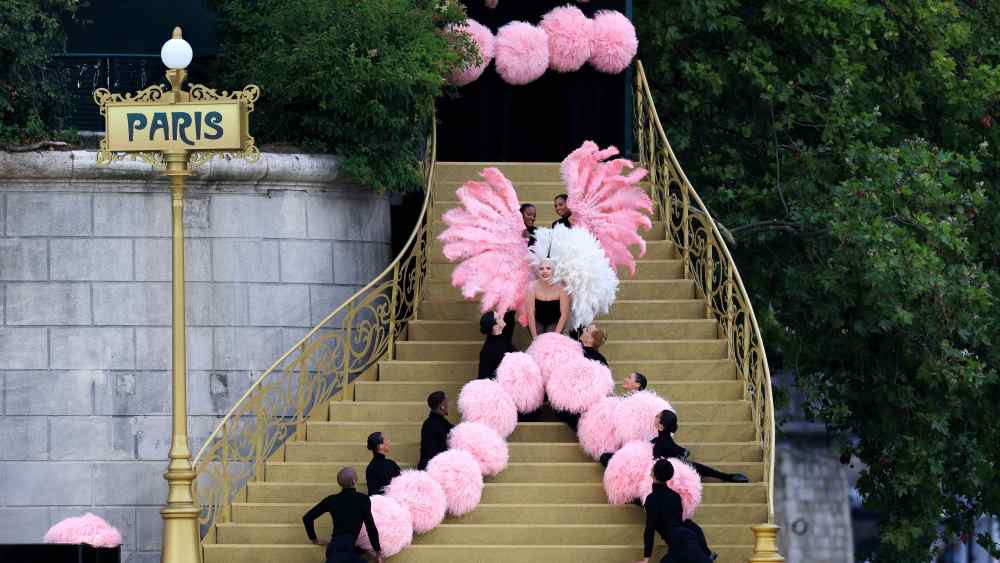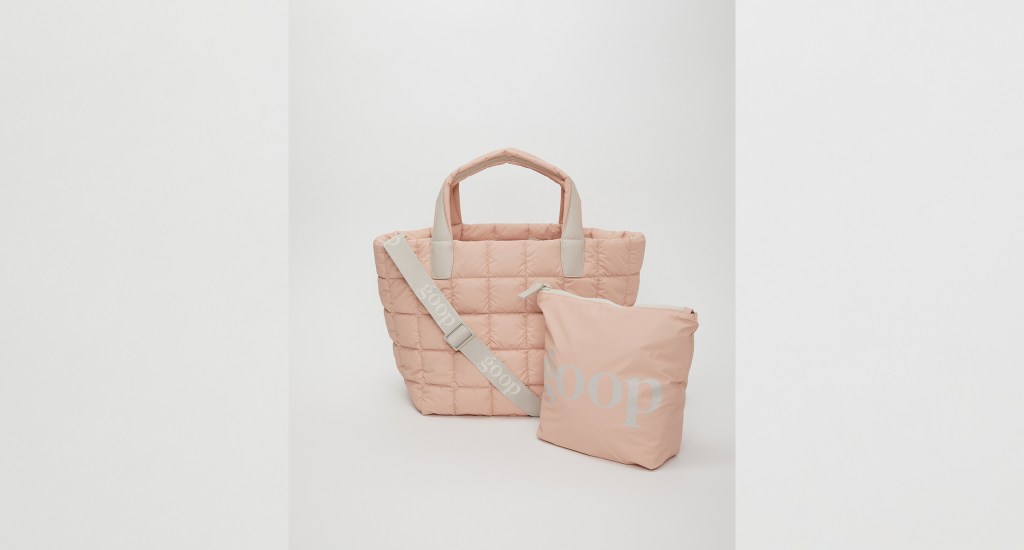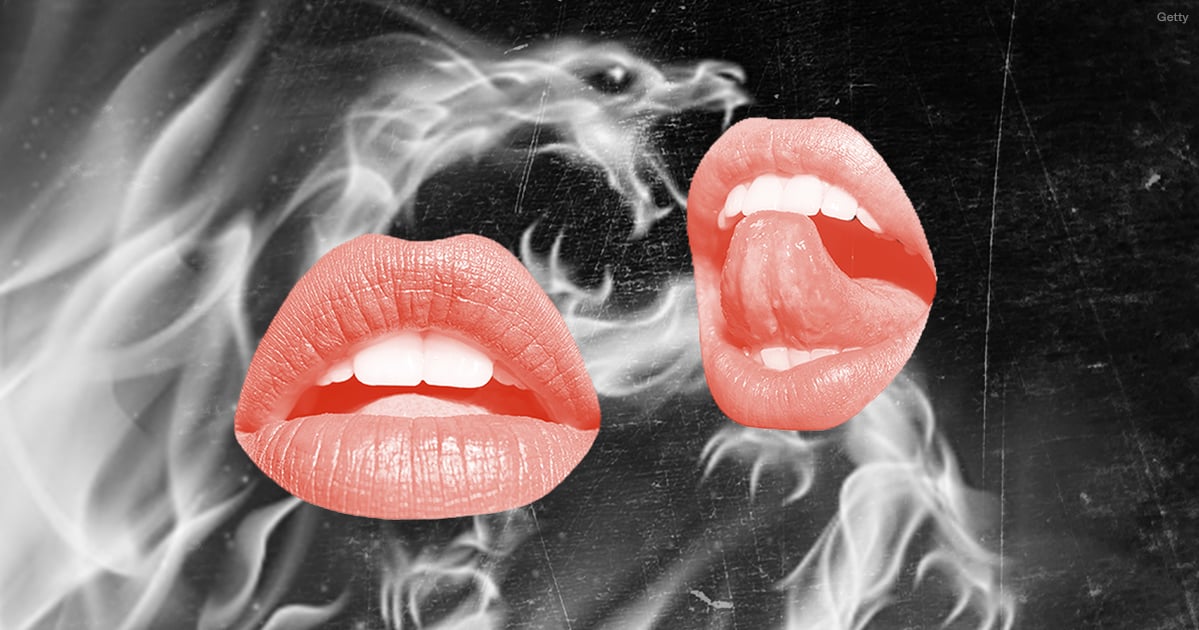PARIS — Paris promised to kick off the 2024 Olympic Games with the greatest show on earth. Mother Nature rained on the French capital’s parade, but Friday’s opening ceremony was still a feast of homegrown fashion.
With LVMH Moët Hennessy Louis Vuitton on board as a premium partner, its Dior, Louis Vuitton and Berluti brands all played a role in the three-and-a-half hour show that unfurled on the Seine, marking the first time the opening ceremony has not taken place in a stadium.
More unexpectedly, the event also shone a spotlight on a plethora of independent Paris-based designers, with Jeanne Friot, Charles de Vilmorin, Victor Weinsanto, Alphonse Maitrepierre, Kevin Germanier and others featured at different points during the story that unfolded in front of landmarks including the Eiffel Tower and Notre-Dame de Paris Cathedral.
Their presence reflected organizers’ ambitions to make the show open, inclusive and environmentally conscious.
You May Also Like
While the pouring rain did not deliver the hoped-for “golden hour” effect, there was plenty to dazzle the more than 300,000 people who gathered on the banks of the river, and the estimated 1.5 billion people who tuned in worldwide.

Maria Grazia Chiuri, artistic director of womenswear at Dior, dressed performers including Lady Gaga and Celine Dion, marking the latter’s triumphant comeback.
Dion appeared in a grand finale on the first floor of the Eiffel Tower, performing Édith Piaf’s classic “Hymne à l’amour” wearing a fringed white silk georgette gown studded with thousands of silver beads that required more than 1,000 hours of work.
The Canadian superstar was last seen onstage in 2019 before announcing she was suffering from stiff person syndrome, a rare disease that causes muscle spasms.
Shortly after the 7:30 p.m. start time, Gaga kicked things off with a tribute to Zizi Jeanmaire.

The singer donned a black feather jacket and black satin bustier and panties, topped with a detachable skirt embroidered with pink and black feathers, to perform the French cabaret performer’s best-known song, “Mon truc en plumes,” alongside 10 dancers on the banks of the river. (Dior clarified in a statement that the feathers were collected during the birds’ molt.)
Dior also dressed French-Malian singer Aya Nakamura, whose rumored presence had triggered a heated debate around race and national representation. A Lancôme brand ambassador, she is the most listened-to French artist in the world.
Dressed in a short, asymmetric dress covered in gold-colored feathers that echoed a look from Chiuri’s fall haute couture collection, Nakamura performed her hit song “Djadja” on the Pont des Arts surrounded by the military band of the French Republican Guard. She ended with a salute, in what could be read as a pointed message to her detractors.

Another highlight was Axelle Saint-Cirel, a mezzo-soprano from the French Caribbean island of Guadeloupe, singing the French national anthem on the roof of the Grand Palais wearing a draped Dior dress that merged with the French flag she was holding.
She was accompanied by a choir of women on the Pont Alexandre III dressed in updated versions of the peplos, the robe traditionally worn by women in ancient Greece, rendered in red, white and blue.
Some of them held flags revisiting the work “Freedom Woman Now” by African American artist Faith Ringgold, who died in April at the age of 93 before she could see the collaboration come to fruition.

It was part of a tableau dubbed “Sororité” — the word replacing the traditional “Fraternité” of France’s national motto “‘Liberty, Equality, Fraternity” — that paid tribute to women who have made a major contribution to French history, including Simone Veil, who as health minister promoted the law legalizing abortion in France in 1975.
Chiuri also had a hand in another emotional high point: Juliette Armanet’s rendition of “Imagine,” accompanied by pianist Sofiane Pamart. The French singer wore a waxed canvas top and flared pants embroidered with light-up embroideries, in a collaboration between Dior and Clara Daguin, a designer known for high-tech creations incorporating LEDs and fiber optics.
After her performance, a message on the screen read: “We stand and call for peace.”
Earlier in the day, Pharrell Williams, artistic director of menswear at Vuitton, joined the ranks of Olympic torchbearers in a relay with Laetitia Casta, the French model who served as the template for the bust of Marianne, the symbol of the French Republic, that is displayed in government buildings across France.

Standing in front of the Basilica of Saint-Denis next to a Vuitton trunk created to house the Olympic torch, the duo symbolized the handover between France and Los Angeles, which is set to host the Summer Games in 2028.
Billed as the biggest TV show ever produced, the opening ceremony involved 18,000 people, from athletes to performers to technicians, according to Thomas Jolly, artistic director of the ceremony.
France’s answer to Lin-Manuel Miranda, he is known for staging marathon Shakespeare productions and recently spearheaded the revival of the 1970s French rock opera “Starmania,” with costumes by Louis Vuitton creative director of womenswear Nicolas Ghesquière.
On Friday night, Vuitton was front and center again in a pre-filmed scene worthy of a blockbuster movie or video game “Assassin’s Creed,” as a masked torchbearer made his way across the rooftop of the French fashion house’s headquarters overlooking the Seine to enter a workshop where craftspeople were making trunks — a bit of poetic license, since the building mainly houses offices and showrooms.
It was the most visible sign of LVMH’s multiple activations around the world’s biggest sporting event.
As part of the scene dubbed “Synchronicity,” several oversize Vuitton trunks were wheeled across the Pont Neuf — where Williams staged his debut show last June — to the Paris Mint, where the Olympic medals designed by LVMH-owned jeweler Chaumet were made.

Another prerecorded sequence showed dancers dressed in upcyled clothes sprayed in gold paint, suspended from scaffolding around Notre-Dame, which is due to reopen in December after five years of renovations following a devastating fire.
Shortly afterward, ballet dancer Guillaume Diop performed live on the roof of City Hall dressed in a beige Vuitton vest and ample brown pleated shorts. Diop last year became the first Black dancer to be named an “étoile,” or star dancer, of the Paris Opera Ballet.
Franco-Algerian rapper Rim’K, member of the group 113, performed in a red and black shearling shirt in an oversize version of the brand’s signature Damier checkerboard pattern.
Meanwhile, Shaheem Sanchez, a deaf dancer who pioneered American Sign Language dancing, performed to the song “Supernature” by French disco legend Cerrone dressed in a copper-colored Vuitton suit.
Daphné Bürki, the styling and costumes director of the ceremony who oversaw the creation of 3,000 individual costumes and commented the ceremony live on France 2 television, only mentioned the name of Dior once, although she cited many of the smaller designers that participated in the evening’s 12 artistic tableaux.
De Vilmorin designed the costumes for a sequence dedicated to love that featured a throuple, in a tribute to the French New Wave classic “Jules et Jim.”
Dancers on poles wore rainbow-colored skirts featuring his fantastical designs, in a scene that concluded with the pilots of the Patrouille de France tracing a red heart in the sky above the Pont des Arts.
Friot, whose designs have been worn by the likes of Madonna and Eurovision winners Måneskin, dressed a cowled rider on a gray horse, reminiscent of Joan of Arc, who brought the Olympic flag to its final destination opposite the Eiffel Tower.
Others were featured in a fashion show staged on the Passerelle Debilly, where Kenzo held a runway display last year.
Farida Khelfa, a muse to designers ranging from Azzedine Alaïa to Jean Paul Gaultier, walked in an outfit by Maitrepierre, while Germanier dressed Paralympic fencer Beatrice “Bebe” Vio Grandis. Weinsanto put his muse Ildjima Masrangar in a giant organza coif in a tribute to his native Alsace.
Almost 100 boats carrying the majority of the 10,500 athletes competing in the Games traveled along the Seine from the Austerlitz bridge to the Trocadero — the esplanade across from the Eiffel Tower.
The French boat was the last in. The athletes were dressed in official uniforms by Berluti, though many had slipped on disposable plastic rain ponchos, somewhat diluting the impact of the design. Fortunately, they are due to don the outfits again for the opening ceremony of the Paralympic Games on Aug. 28.
Jolly said he wanted the ceremony to show that France is “very flamboyant, extremely diverse and extremely rich” — a strong political statement at a time when the country’s government is in limbo, following snap elections that resulted in a hung parliament.
“Paris and the Olympic Games in general are all about people coming together,” he said.


